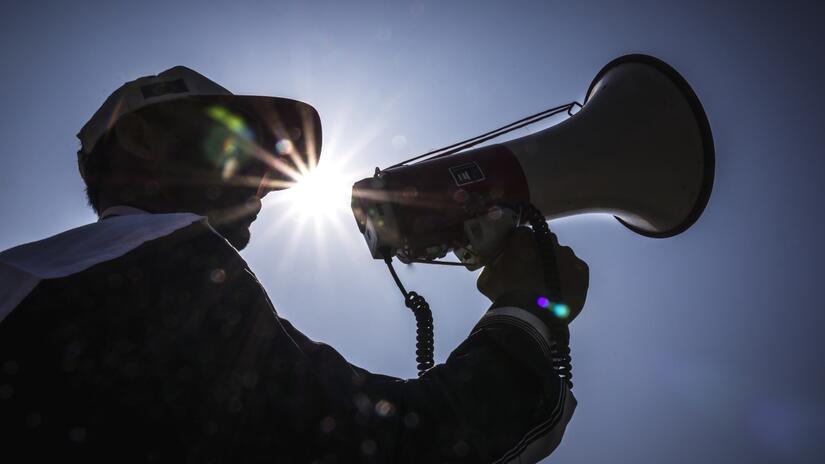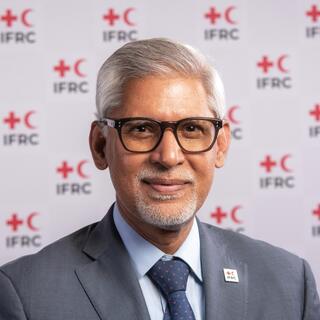Your Excellencies, Ladies and Gentlemen,
The IFRC welcomes the UN Secretary-General’s pledge on Early Warning Systems for All.
Over the last decade, some of the most recent—and often predictable—extreme weather events were the most deadly, costly, and devastating.
From our experience, we know that early warnings can only work if they are turned into early anticipatory actions.
This message has come through well in the Early Warning for All initiative.
The IFRC has been contributing to 3 of the 4 pillars of the executive action plan on this initiative and leading on the ‘preparedness to respond' pillar.
We thank everyone involved in the development of the plan of action.
Now is the time to put the plan into action. Here is how:
First: help create an enabling environment where local communities and organizations like our National Red Cross and Red Crescent societies are truly empowered to lead local actions. Their power through their knowledge and ownership can be truly transformative in realising the ambitions of early warning and early action. Be courageous to unleash that power.
Second: the key to success is the power of partnership. Let's bring together and use the best of our organizations to implement the plan of action.
Third: The Early Warning for All initiative is most effective if we leverage the power of existing coordination and collaboration platforms such as the IFRC hosted Risk-informed Early Action Partnership and Anticipation Hub, as well as the Centre of Excellence.
Finally, put in place ambitious financing mechanisms. Change will not come without an investment. The IFRC’s Disaster Response Emergency Fund is a good example as it can disburse funds ahead of disasters to reduce their humanitarian impact.
Ultimately our collective success should be measured by the lives saved and livelihoods preserved.
The IFRC network looks forward to a strong collaboration on the Early Warning for All initiative with the WMO and other partners.
Together, let us ensure that early warnings are people-centered, including those in the furthest to reach places.
Thank you.


